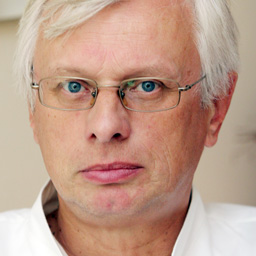Attenzione! Per visualizzare al meglio il sito e usufruire di tutte le funzionalità messe a disposizione
si consiglia di aggiornare la versione in uso di Internet Explorer alla versione 8 o superiore. Grazie!
Home > Development of Nephrology
Pubblicato il 18 febbraio 2016

M. Muszytowski1,4, J. Ostrowski2,4, B. Rutkowski3,4
(1) Department of Nephrology, Diabetology and Internal Medicine, Collegium Medicum, Nicolaus Copernicus University, Rydygier Hospital, Toruń, Poland
(2) Department of Internal Medicine and Nephrology, Voivodeship Hospital, Włocławek, Poland
(3) Department of Nephrology, Transplantology and Internal Medicine, Medical University, Gdańsk, Poland
(4) Historical Section of the Polish Society of Nephrology
Address correspondence to: Dr Marek Muszytowski; Department of Nephrology, Diabetology and Internal Medicine CM NCU, Rydygier Hospital in Toruń ul. Św. Józefa 53-59, 87-100 Toruń, Poland; Tel:+48 56 61 01 310 Fax:+48 56 61 01 272 e-mail: marek.muszytowski@gmail.com

© 2013-2024 Società Italiana di Nefrologia — ISSN 1724-5990 — Editore Tesi SpA
Giornale Italiano di Nefrologia è una testata giornalistica registrata presso il Tribunale di Milano. Autorizzazione n. 396 del 10.12.2013.

La piattaforma web su cui condividere in maniera semplice, efficace ed interattiva le conoscenze nefrologiche attraverso la pubblicazione online di documenti multimediali.
NephroMEET accoglie come documenti con marchio SIN quelli approvati da: Comitati e Commissioni ufficiali SIN, Gruppi di Studio SIN, Sezioni Regionali/Interregionali SIN.
Il Consiglio Direttivo SIN si riserva inoltre la facoltà di certificare con marchio SIN altri documenti qualora lo ritenga opportuno.
Gli Autori si assumono in ogni caso la responsabilità dei contenuti pubblicati.
I contenuti pubblicati sono riservati ad un pubblico esperto nel settore medico-scientifico.
Seguici su Twitter
Developer e partner tecnologico:
TESISQUARE®
Assistenza telefonica allo 0172 476301
o via mail